Updated AAG Schedule for the March for Science
Updated AAG Schedule for the March for Science
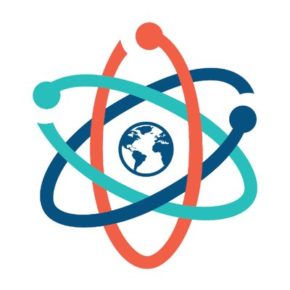 We invite and encourage AAG members to attend the March for Science in Washington, D.C. or in satellite events around the globe this Saturday, April 22. We have updated the schedule below to include the just-released list of speakers.
We invite and encourage AAG members to attend the March for Science in Washington, D.C. or in satellite events around the globe this Saturday, April 22. We have updated the schedule below to include the just-released list of speakers.
Saturday Schedule of Events
9:00 am – 6:30 pm: The AAG Meridian Place Office in Washington, D.C. (1710 16th Street NW) will be open as a gathering place and information center for geographers participating in the March. We will have coffee and refreshments available for marchers throughout the day.
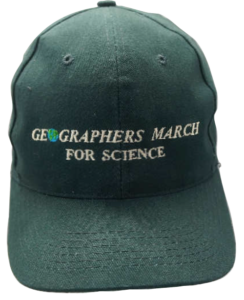 The AAG has designed special “Geographers March for Science” hats that will be available at our office for only $7.00. We have also created large banners for groups of geographers participating in the March, which many AAG members signed during the annual meeting in Boston. You may also download and print a small version of this banner to carry with you.
The AAG has designed special “Geographers March for Science” hats that will be available at our office for only $7.00. We have also created large banners for groups of geographers participating in the March, which many AAG members signed during the annual meeting in Boston. You may also download and print a small version of this banner to carry with you.
8:00 am: The gates to the main-stage area for the March will open. The two gates are on Constitution Avenue NW at 15th and 17th Streets
9:00 – 11:30 am: March for Science teach-ins near the main stage.
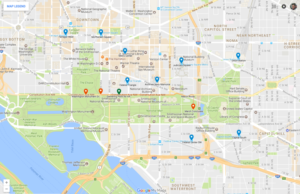
10:00 am – 2:00 pm: The official main stage program of speeches and presentations. The main stage will be on Constitution Avenue at 16th Street (just north of the Washington Monument). The list of speakers can be found here: www.marchforscience.com/speakers/
1:30 – 2:00 pm: Geographers and friends are encouraged to gather together on the steps of the north side entrance of the National Museum of American History (the Constitution Avenue side of the Museum at approximately 13th Street – NOT the side facing the National Mall) so that we can all march as a large group.
2:00 – 4:00 pm: Marching to the U.S. Capitol Building to conclude the March for Science. Full logistical details can be found here: https://www.marchforscience.com/event-details/
5:00 – 6:30 pm: Happy Hour Reception at the AAG office. Come join us for a celebratory drink and to gather in groups with your friends for dinner. There are hundreds of good restaurants within walking distance of our AAG office. AAG President Glen MacDonald will offer a toast.
Other logistical information
We would like to know if you will be coming to Washington for the March! Please fill out this form, so that that we can have an accurate count for the March and also for post-reception refreshments and snacks.
Other Related Events in Washington during the March for Science Weekend
- The Smithsonian’s Earth Optimism Summit is taking place from Friday the 21st through Sunday the 23rd with a schedule of public events on Sunday available here: https://earthoptimism.si.edu/public-events/
- Friday, 5:30 – 6:30 pm: Event featuring former presidential science advisor John Holdren at AAAS Headquarters. This event is sold out, but we have a few tickets that we will give to the first AAG members who contact John Wertman of the AAG staff at jwertman [at] aag [dot] org.
The AAG is a formal partner of the March, and we affirm the nonpartisan beliefs that the benefits of science are a human right, that science should be well funded, and that political leaders should enact evidence-based policies for the common good.
Please do not hesitate to contact the AAG at 202-234-1450 with any questions you may have about participating in the March for Science or about the event itself. We hope you will join us and our colleagues from all disciplines in supporting this historic event!
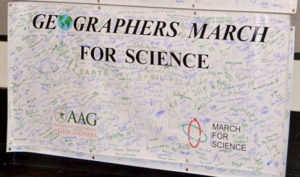
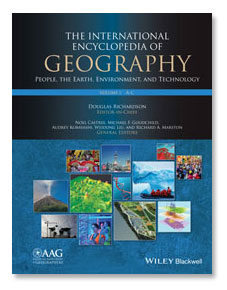 The AAG and an international team of distinguished editors and authors announce a new major reference work for Geography: The International Encyclopedia of Geography: People, the Earth, Environment, and Technology.
The AAG and an international team of distinguished editors and authors announce a new major reference work for Geography: The International Encyclopedia of Geography: People, the Earth, Environment, and Technology.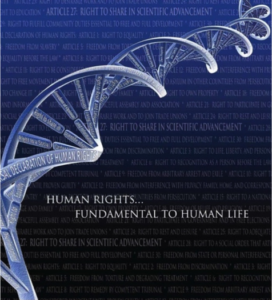 This special theme will feature 50 sessions with more than 250 presentations at the intersection of human rights and geography and will build on the AAG’s decade-long initiatives in this area. Speakers from leading international human rights organizations, academia, government, and NGOs will address human rights challenges around the world.
This special theme will feature 50 sessions with more than 250 presentations at the intersection of human rights and geography and will build on the AAG’s decade-long initiatives in this area. Speakers from leading international human rights organizations, academia, government, and NGOs will address human rights challenges around the world.
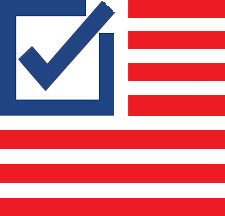 This series of sessions will focus on analysis and research on the 2016 U.S. election, and what the results may mean for geography, the nation, and our planet.
This series of sessions will focus on analysis and research on the 2016 U.S. election, and what the results may mean for geography, the nation, and our planet. 
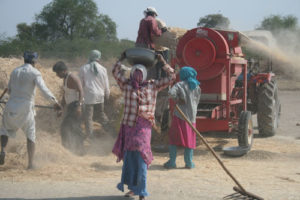 Burgeoning global population along with increasing appetite for high-protein or resource demanding food choices may double demands on world agriculture by 2050. At the same time groundwater depletion and climate change are negatively impacting the availability of sufficient water to meet agricultural and domestic freshwater demands in many regions. Compounding these challenges are socioeconomic forces, including armed conflicts and state collapse that negatively affect agricultural productivity, food transference and water resources. The challenges to food and water security over the 21st century represent an increasing and potentially existential threat to global society. These issues are fundamentally geographical in nature and form a central research and educational focus of geography and the AAG special theme.
Burgeoning global population along with increasing appetite for high-protein or resource demanding food choices may double demands on world agriculture by 2050. At the same time groundwater depletion and climate change are negatively impacting the availability of sufficient water to meet agricultural and domestic freshwater demands in many regions. Compounding these challenges are socioeconomic forces, including armed conflicts and state collapse that negatively affect agricultural productivity, food transference and water resources. The challenges to food and water security over the 21st century represent an increasing and potentially existential threat to global society. These issues are fundamentally geographical in nature and form a central research and educational focus of geography and the AAG special theme.
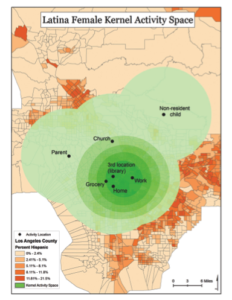 Uncertainty and context pose fundamental challenges in geographic research and GIScience. Geospatial data are imbued with error (e.g., measurement and sampling error), and understanding of the effects of contextual influences on human behavior and experience are often obfuscated by various types of uncertainty (e.g., contextual uncertainties, algorithmic uncertainties, and uncertainty arising from different spatial scales and zonal schemes). To generate reliable geographic knowledge, these uncertainties and contextual issues will be addressed within the special theme.
Uncertainty and context pose fundamental challenges in geographic research and GIScience. Geospatial data are imbued with error (e.g., measurement and sampling error), and understanding of the effects of contextual influences on human behavior and experience are often obfuscated by various types of uncertainty (e.g., contextual uncertainties, algorithmic uncertainties, and uncertainty arising from different spatial scales and zonal schemes). To generate reliable geographic knowledge, these uncertainties and contextual issues will be addressed within the special theme.
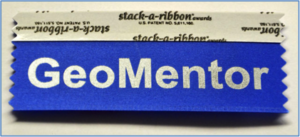 Display Area: Check out the GM display, located on the same floor as registration, for program information and to ask questions to program staff. We’ll give you a ribbon to sport on your name badge for the week! Tell your non-GeoMentor friends to come by too!
Display Area: Check out the GM display, located on the same floor as registration, for program information and to ask questions to program staff. We’ll give you a ribbon to sport on your name badge for the week! Tell your non-GeoMentor friends to come by too!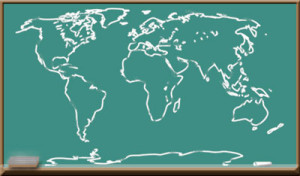 The 2017 Annual Meeting is the first since the establishment of the new Undergraduate Student Affinity Group and over 400 undergraduates have already registered to attend! At the Annual Meeting, students are encouraged to network with their peers and colleagues, expand their involvement in and understanding of the discipline of geography, and learn skills to build their careers. To celebrate and engage this important part of the AAG community, there will be events, activities, and resources geared for undergraduate students in attendance in Boston.
The 2017 Annual Meeting is the first since the establishment of the new Undergraduate Student Affinity Group and over 400 undergraduates have already registered to attend! At the Annual Meeting, students are encouraged to network with their peers and colleagues, expand their involvement in and understanding of the discipline of geography, and learn skills to build their careers. To celebrate and engage this important part of the AAG community, there will be events, activities, and resources geared for undergraduate students in attendance in Boston.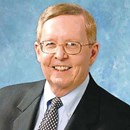 The Tom Wilbanks family has created a new award to memorialize Tom, the
The Tom Wilbanks family has created a new award to memorialize Tom, the